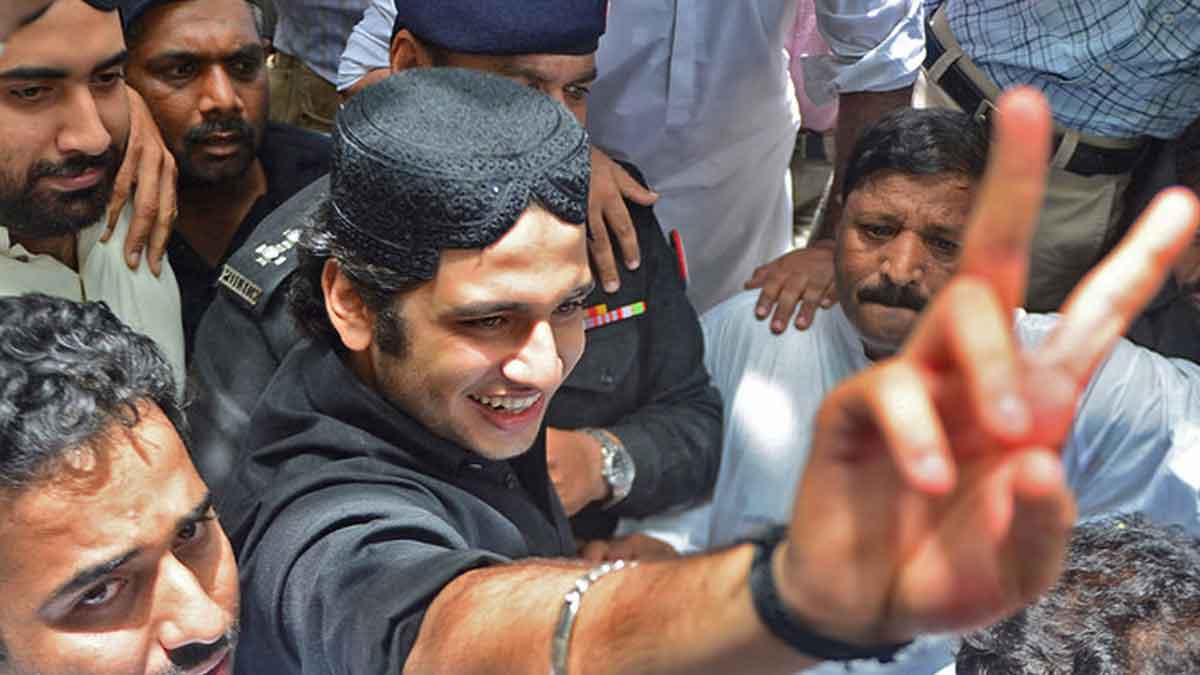Shahrukh Jatoi and his alleged accomplices in the Shahzeb Khan murder case were both set free by the Supreme Court on Tuesday.
The case was reviewed by a three-judge panel that included Justice Sayyed Mazahar Ali Akbar Naqvi, Justice Munib Akhtar, and Justice Ijazul Ahsan.
Jatoi and his accomplice Siraj Ali Talpur were given the death punishment by an anti-terrorism court (ATC) for the murder of Shahzeb in 2012 as a result of a minor argument. Sajjad Ali Talpur, Siraj’s younger brother, and Ghulam Murtaza Lashari, a domestic servant, both received life sentences.
However, a formal pardon was issued by Shahzeb’s parents a few months after the verdict and was accepted by the Sindh High Court (SHC).
Due to the addition of terrorist charges to the case, the death penalty had nonetheless been upheld despite the pardon—that is, until the SHC dismissed the charges and mandated a new trial.
Read more: In a first, Police registers case against a man for killing a pet dog
The SHC later changed the death penalties into life sentences after considering appeals against the conviction. All four defendants including Shahrukh Jatoi had subsequently petitioned the Supreme Court.
Their attorney, Latif Khosa, mentioned that the formal pardon had already been granted. He asserted that his clients had no desire to spread terror.
Shahzeb Khan’s Murder
The son of a police official, Shahzeb Khan a 20-year-old boy, was shot and killed at Karachi’s Defence Housing Authority on the evening of December 24, 2012. He was returning home from a wedding with his sister.
Shahzeb was murdered because he got into an argument with one of the suspects’ servants after the servant verbally threatened and tormented his sister.
The incident, which aroused enormous anger across the nation through newspapers, TV channels, and social media, was then brought to the chief justice’s attention suo motu.
Due to the fact that the main suspect came from one of Sindh’s most prominent feudal families, the incident had led to a national discussion over whether the ruling class of the nation could be held accountable for the atrocities it committed.
Shahrukh Jatoi and co-accused Nawab Siraj Talpur were later given the death penalty by Anti-Terrorism Court-3 Judge Ghulam Mustafa Memon following a swift trial. For their roles in the murder, Sajjad Talpur and the Talpurs’ servant Ghulam Murtaza Lashari received life sentences.
But a few months after the verdict, Shahzeb’s parents had formally pardoned the convicts.





















